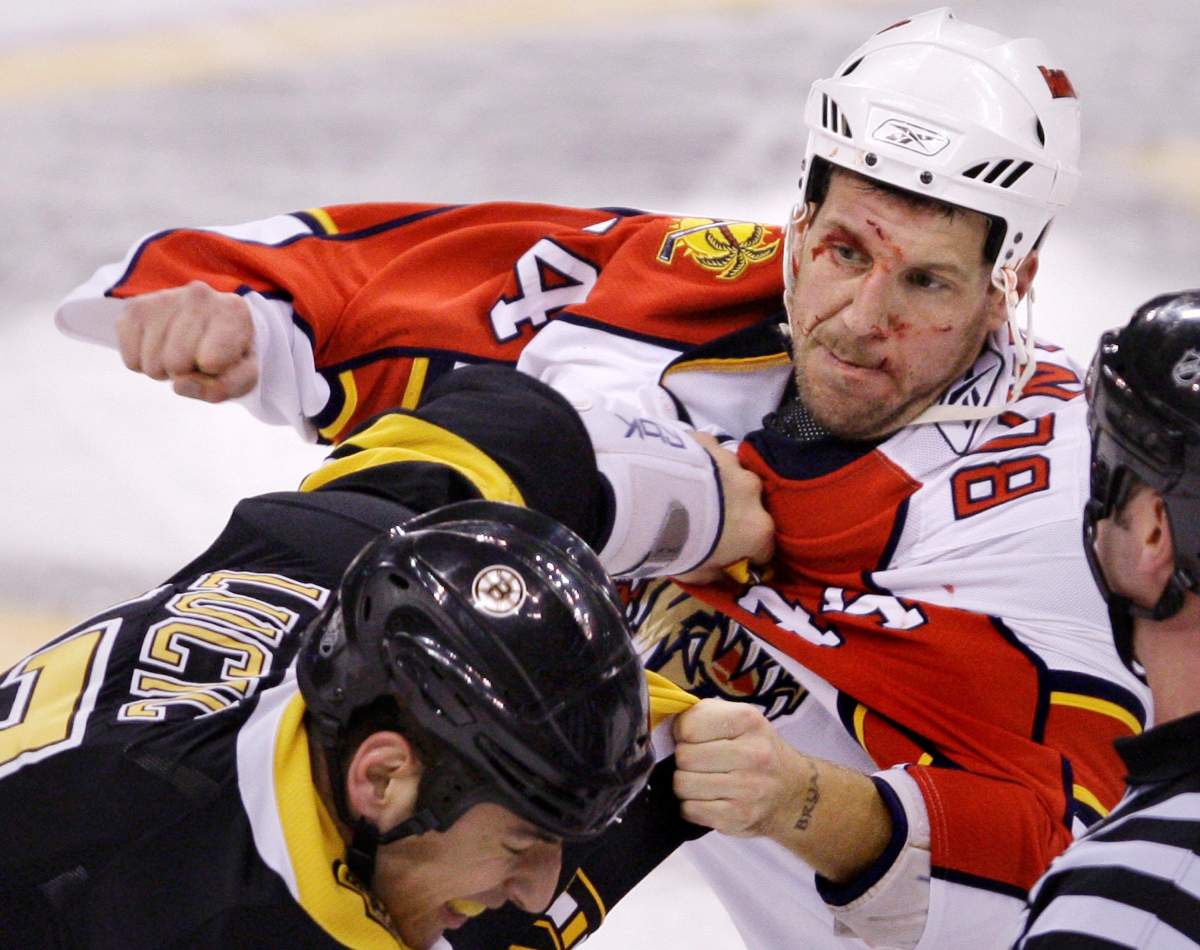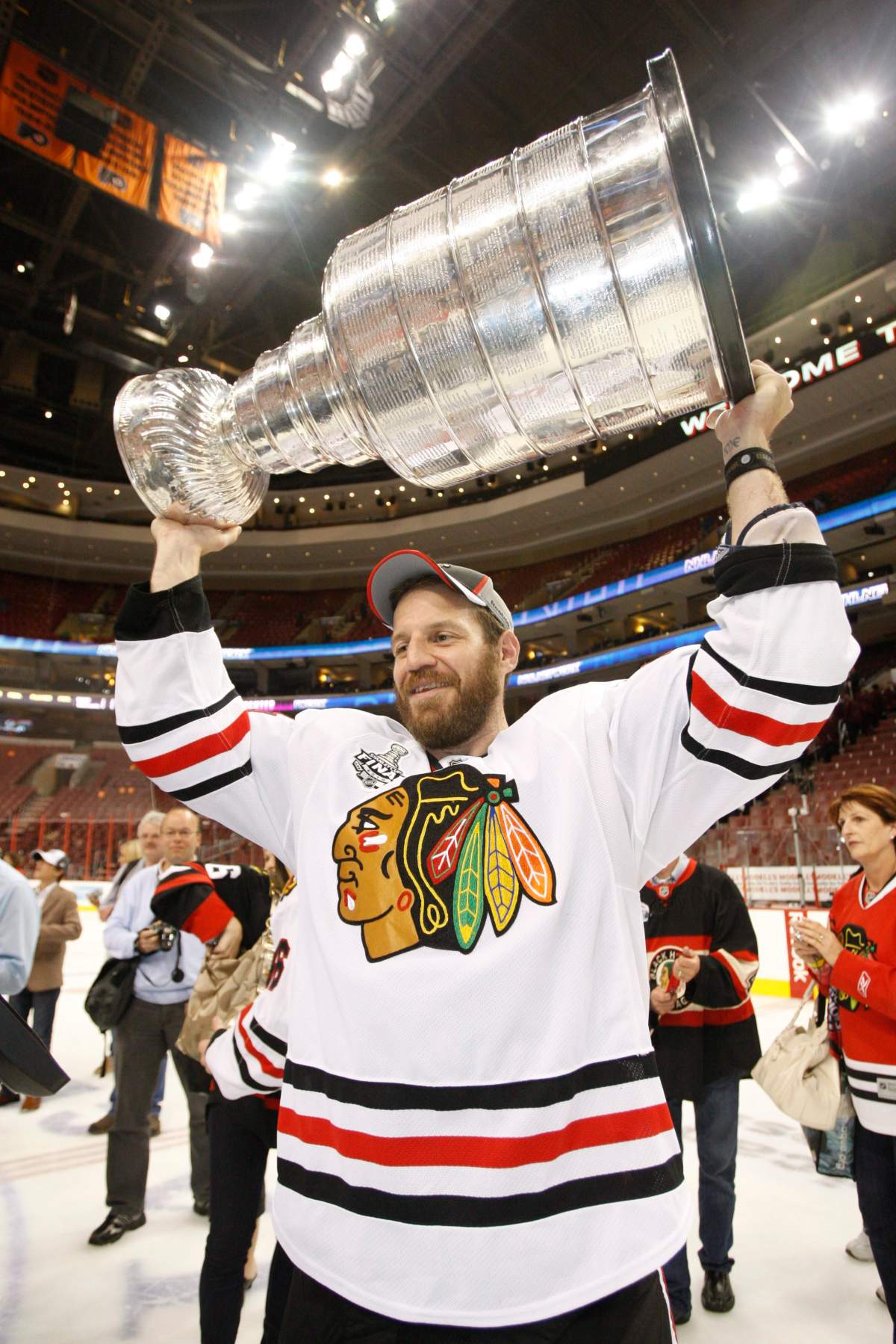A former NHL enforcer is speaking out about what he says is a dangerous culture in the league that leaves players open to brain damage, mental illness and substance abuse.

Nick Boynton, formerly a defenceman with the Boston Bruins, Philadelphia Flyers, Chicago Blackhawks and other teams, penned a deeply personal piece in the Players’ Tribune this week titled ‘Everything’s not O.K.,’ in which he details his 11 seasons as an on-ice tough guy, and the personal cost it came with.
LISTEN: Former NHLer Nick Boynton shares depression, addiction struggles, and questions if his career in the league was ‘worth it’
The piece goes into detail about the head trauma he suffered in fights, how it led him to substance abuse and the decade of mental health issues that followed.
It also touches on the several other NHL enforcers who have taken their own lives, and Boynton’s fear that he could well have joined them.
He even went as far as to say that if he could trade his Stanley Cup ring to go back and undo everything that has happened, he would.
“They can scratch my name off that cup, and I’d hand my ring back right now if I could go back and make it so that I wouldn’t have had to experience all this pain and sorrow and anger and sadness,” he writes.
On Thursday, Boynton joined CKNW’s The Simi Sara Show to explain why he felt he needed to speak out.
“It’s so difficult to talk about for me,” he said.

Get breaking National news
“It’s confusing, its baffling, but I just found getting it out of my head and on paper was probably the best way to describe what was going on.”
Boynton said he’s suffered at least eight concussions in his career, and maybe more: he says the league lost two years of his medical records.
But despite repeated injuries, he said the culture in the league was one of “tough it out.” Even when he found himself taking so many pain-killers that entire stretches of the season blurred together, he kept his issues to himself.
“It was just something you really didn’t talk about. So I had my bell rung 20 or 30 times, easily, and you just keep going, and it’s a struggle.”
Boynton said when he finally did find the courage to speak up and seek help from one of his teams, he was traded shortly afterward — an experience that taught him to keep his mouth shut.
WATCH: New guidelines for athletes dealing with concussions

It wasn’t until Boynton was in his 30s that he got serious treatment, including help with his addiction — with funding from the NHL. He’s been to rehab three times and admits it hasn’t always been successful.
And he said despite doing everything the league told him to do, his condition keeps getting worse. Now, living with the symptoms, he said he can’t keep silent any more.
“That’s drinking the Kool-Aid. I’ve got to speak up, I can’t live like this. I know so many friends and teammates are struggling. It’s got to change because the NHL, they’re in the stone age,” he said.
WATCH: Ken Dryden, author & NHL Hall-of-Fame Goalie, to give keynote address at Concussion Awareness Symposium

“I can be going along for weeks, even months at a time and then just wake up and my head… I’m sensitive to light, just heat —
hot and cold.
“Just everything seems to be thrown off some days. And like, anger. And my anger just eventually turns into sadness and crying. And I have no answers.”
Boynton said he still loves hockey, and is thankful for the many good things the sport has brought into his life.
But he said knowing what he knows now, he’d never let his hockey-obsessed son play in the NHL.
He believes the league is being willfully blind, and needs to get serious about treating head injuries, down to integrating doctors into the game — and empowering them to override players, coaches and GMs.
“We’ve got to get trained neurologists in there to deal with these injuries at the time, get treatment at the time. Not hope problems don’t turn up 10, 20 years down the road,” he said.
“They put a cast on my wrist when I break it. Break my leg, fix the bone. But I want my brain fixed.”









Comments
Want to discuss? Please read our Commenting Policy first.